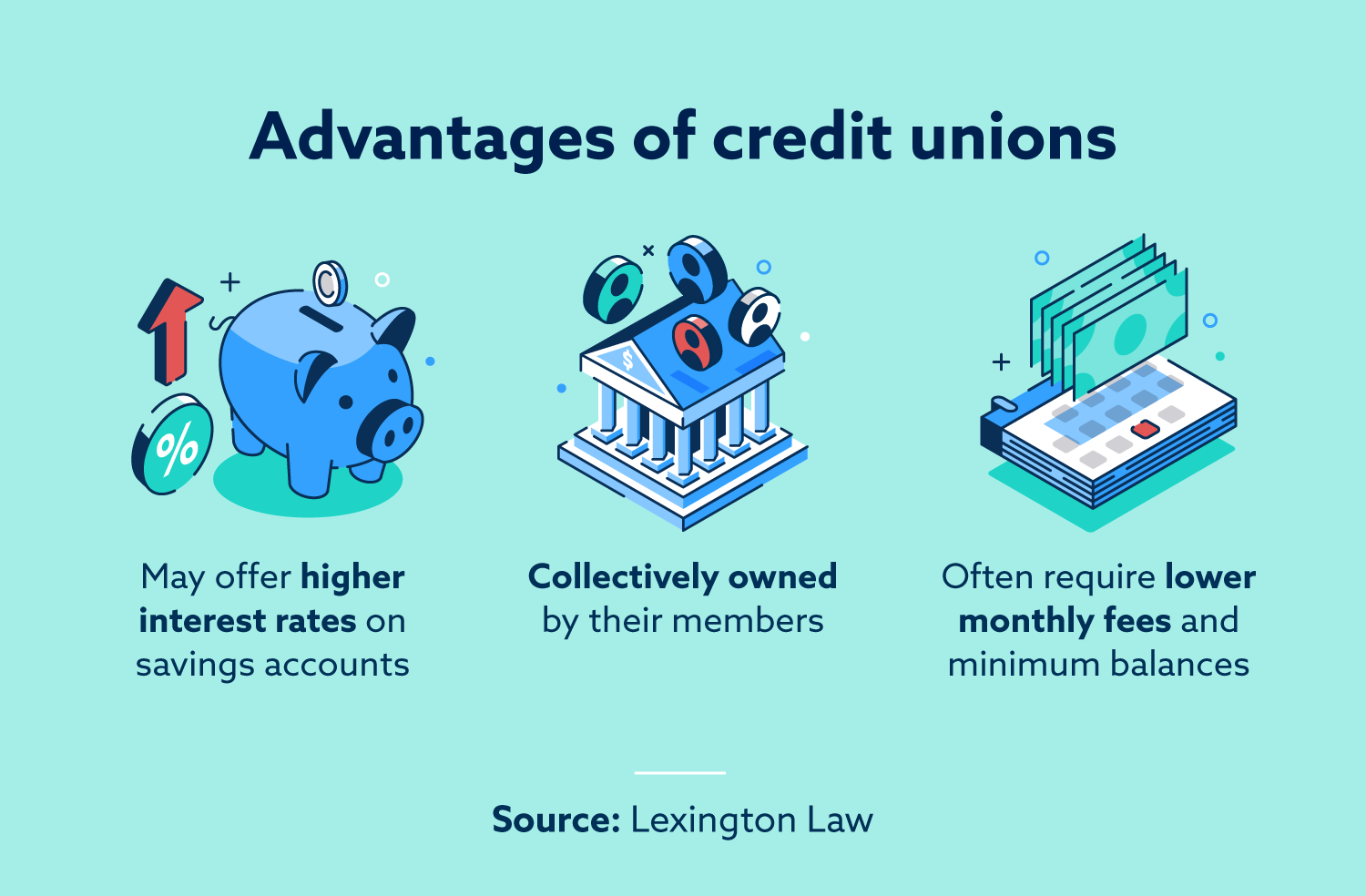Cheyenne Federal Credit Union: Your Resource for Reliable Financial Providers
Cheyenne Federal Credit Union: Your Resource for Reliable Financial Providers
Blog Article
Sign Up With the Activity: Why Federal Cooperative Credit Union Matter
In the realm of economic organizations, Federal Credit score Unions stand out as columns of community-focused banking, yet their significance expands beyond typical financial solutions. As we decipher the layers of their impact on individuals and areas alike, it becomes noticeable that Federal Credit score Unions hold the secret to a much more equitable and thriving financial landscape.
History of Federal Cooperative Credit Union
Since their creation, Federal Cooperative credit union have actually played a crucial function in the financial landscape of the USA. The background of Federal Cooperative credit union dates back to the very early 20th century when the Federal Lending Institution Act was authorized right into regulation by President Franklin D. Roosevelt in 1934. This Act was a reaction to the Great Anxiety, intending to promote thriftiness and prevent usury by giving inexpensive credit history to members.
The Act permitted groups of individuals with a typical bond, such as staff members of the same business or participants of an organized labor, to develop cooperative credit union. These credit history unions were developed as not-for-profit financial cooperatives, possessed and operated by their members. The cooperative framework made it possible for people to pool their resources and provide accessibility to budget-friendly financings and other economic solutions that might not have been offered to them via typical banks.
Throughout the years, Federal Cooperative credit union have actually proceeded to expand in number and influence, serving countless Americans nationwide. They have stayed committed to their beginning concepts of community focus, member ownership, and financial inclusion.
Distinct Services Offered by Credit Score Unions

In addition, lending institution often provide lower rate of interest on lendings and credit history cards compared to bigger banks. This can result in considerable expense savings for participants, particularly for those seeking to obtain cash for big acquisitions such as autos or homes. In addition, debt unions often offer greater rate of interest on financial savings accounts, enabling members to expand their money better.
Another unique solution provided by cooperative credit union is profit-sharing. As not-for-profit organizations, lending institution disperse their profits back to participants in the type of rewards or decreased fees. This cooperative structure fosters a feeling of shared ownership and neighborhood amongst participants, enhancing the notion that lending institution exist to serve their members' benefits.
Advantages of Membership in Lending Institution
Joining a lending institution uses participants a host of tangible advantages that originate from the establishment's member-focused strategy to monetary solutions. Unlike traditional banks, lending institution are not-for-profit companies possessed and operated by their members. This unique framework enables lending institution to focus on the most effective passions of their members above all else, leading to several advantages for those that select to sign up with.

Neighborhood Impact of Lending Institution
Lending institution play an essential function in promoting financial stability and development within regional neighborhoods with their unique economic solutions model. Unlike traditional financial institutions, credit report unions are member-owned and ran, enabling them to concentrate on offering the very best passions of their members instead than producing revenues for shareholders. This member-centric strategy converts into concrete benefits for the neighborhood at large.
One considerable way credit history unions effect communities is by giving accessibility to budget-friendly financial product or services. Wyoming Federal Credit Union. From low-interest finances to competitive financial savings accounts, credit report unions provide a variety of alternatives that help individuals and small companies grow. By reinvesting see this here their revenues back into the area in the kind of reduced fees, greater passion rates on deposits, and far better lending terms, debt unions add to the overall monetary health of their participants
Additionally, cooperative credit union typically focus on economic published here education and outreach campaigns, equipping community participants with the knowledge and resources needed to make sound financial decisions. By offering financial proficiency programs, workshops, and one-on-one counseling, credit score unions empower people to attain greater monetary self-reliance and safety. Generally, the neighborhood effect of cooperative credit union goes past simply banking solutions; it encompasses developing stronger, more durable neighborhoods.
Future Development and Trends in Cooperative Credit Union
In the middle of progressing economic landscapes and moving customer choices, the trajectory of credit report unions is positioned for dynamic adjustment and technology. As more purchases move to electronic systems, credit unions are improving their on-line solutions to fulfill member assumptions for benefit and effectiveness.
Additionally, sustainability and social duty are arising as crucial fads influencing the growth of lending institution. Participants are significantly looking for financial organizations that align with their values, driving credit scores unions to incorporate environmental and social campaigns into their operations (Credit Unions Cheyenne). By focusing on sustainability methods and community growth jobs, cooperative credit union can attract and keep participants who prioritize moral financial methods

Final Thought
Finally, government credit history unions play a crucial function in promoting financial security, neighborhood empowerment, and inclusivity. Via their special solutions, member ownership framework, and dedication to reinvesting in the community, credit unions prioritize the wellness of their participants and add to building more powerful communities. As they proceed to adjust and expand to transforming trends, credit unions will certainly remain an important force ahead of time economic independence for all people.
The background of Federal Credit report Unions dates back to the early 20th century when the Federal Credit History Union Act was signed right into law by Head of state Franklin D. Roosevelt in 1934.The Act permitted groups of people with an usual bond, such as staff members of the very same firm or members of a labor union, to create credit scores unions.Furthermore, credit scores unions usually offer reduced rate of interest rates on lendings and debt cards contrasted to bigger economic institutions.Furthermore, credit history unions typically focus on economic education and learning and outreach campaigns, outfitting area participants with the expertise and sources needed to make audio monetary decisions. Through their distinct services, member ownership structure, and dedication to reinvesting in the community, credit rating unions prioritize the wellness of their participants and contribute to building stronger areas.
Report this page